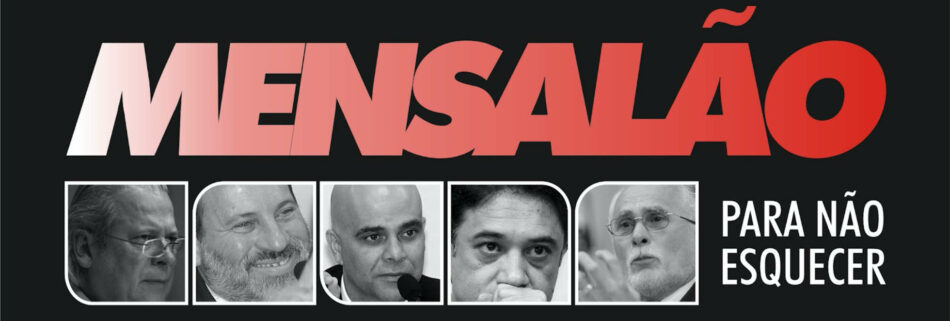mensalão
...is very, very interesting. In fact, we can learn something useful from it. In Portuguese, there is a simple way to refer to something thst is really, really big or, very important etc. - in an exaggerated way. You can add an ão to many (though not all) words making it BIG, HUGELY IMPORTANT.
Now lets look at the word mensalão - it's important to know something about this scandal as it's important modern history. Some say it's a turning point in Brazil's efforts to reign-in political corruption. The word comes from mês (month). Anything that happens monthly is mensal. The politicians that were convicted (and sent to jail - unheard of here!) were receiving HUGE monthly payments (bribes) in exchange for voting in line with the ruling party. So the scandal got labeled as the mensalão crime. We would translate it literally as "big monthly".
While you can't simply add an ão to anything, you can to many, many words. Brazilians do this all the time. Sometimes they just make up new words by tacking an ão to the end. An official vocabulary of augmentatives exists, but you can't go wrong by trying the simple ão ending for almost anything. Here are some official ones:
car = carro > carrão
ball = bola > bolão
head = cabeça > cabeção
heat = calor > calorão
friend = amigo > amigão
Check the pronunciation in this clip:
From the learning series INTENSIVO

Comentários